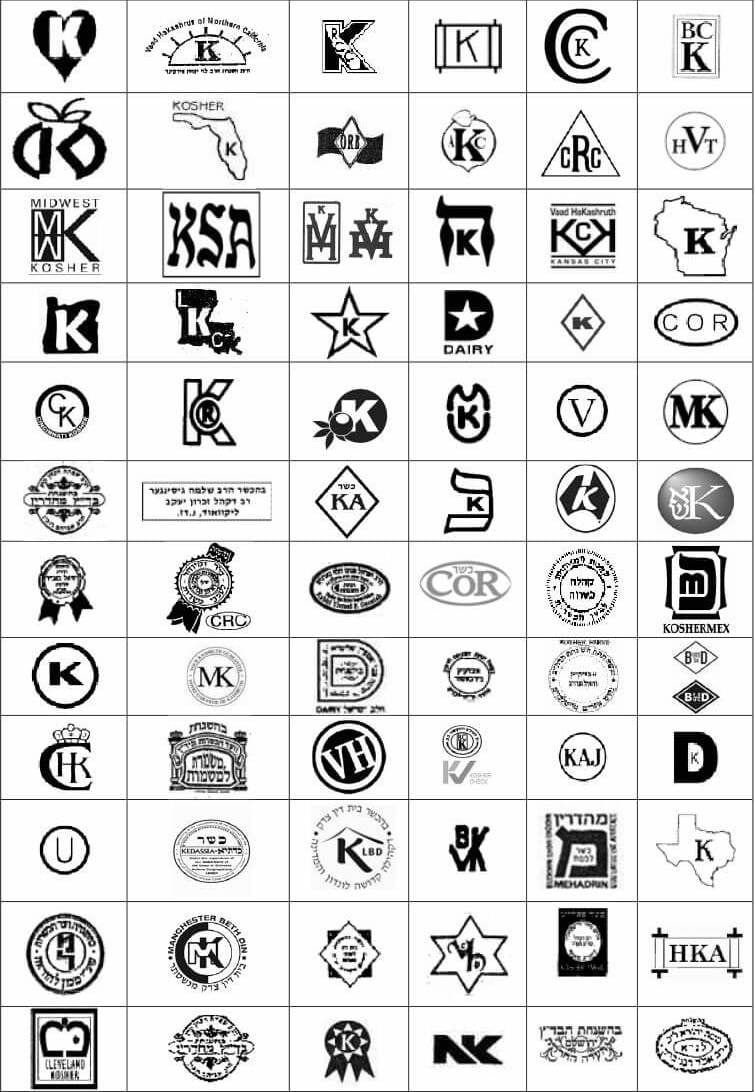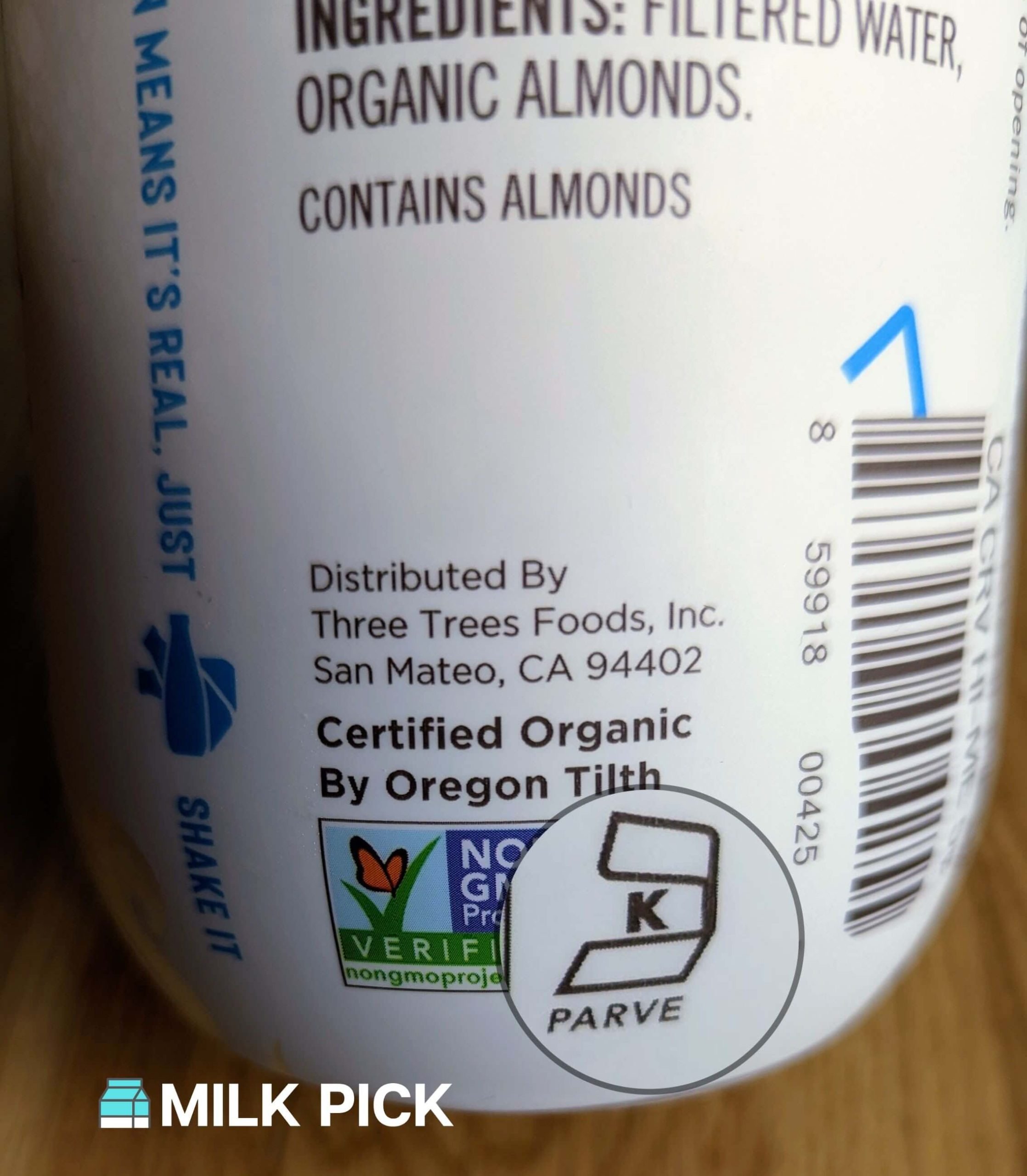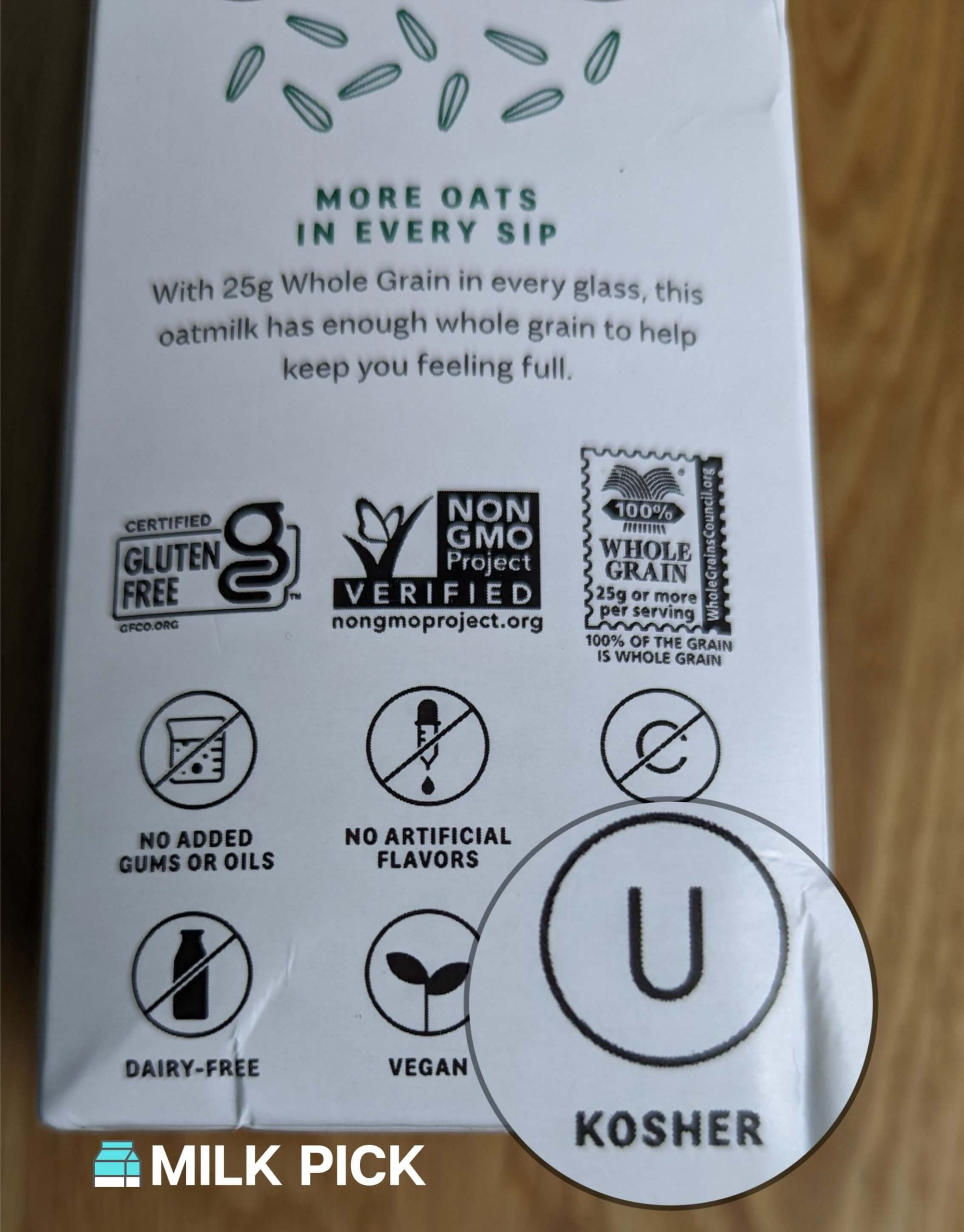Kosher is a Hebrew word that describes food that fits into the strict dietary guidelines of people who practice Judaism.
Jewish people who eat a kosher diet follow a set of rules laid out by biblical laws.
These laws have a rich cultural and religious significance, making the importance of eating kosher foods more than a simple dietary choice.
Although cow’s milk is allowed on a kosher diet, complex guidelines regulate when and what foods you can drink it with. This makes choosing an alternative milk product preferable for some Jewish people.
However, kosher rules apply to more than just the source of a product, they also refer to other included ingredients and the preparation process.
Understanding the basics of a kosher diet can help you pick a milk product that falls within the approved constraints of this strict dietary framework.
Quick Answer
What is kosher milk?
Kosher milk is a milk product that conforms to kosher dietary guidelines, meaning the product is manufactured using kosher equipment, comes from a kosher animal (for dairy milk), and all added ingredients meet kosher requirements.
What Does “Kosher” Mean?
The term kosher is an English variation of the Hebrew “kashér,” meaning proper, pure, or suitable for consumption.
The “kashrut” are collective laws that guide kosher eating patterns found in the Torah (the first five books of the Bible), specifically in Deuteronomy 17 and Leviticus 11.
Prior to modern food production standards, eating a kosher diet offered a hygienic benefit to Jewish people, as it ensured cleanliness and reverence when preparing a meal.
Many aspects of a kosher diet still offer improved food processing standards over standard practices.
But more importantly, a kosher diet connects the follower to what the Torah expresses as Divine Will for the Jewish people. This makes a kosher way of eating a spiritual practice.
For many people of the Jewish faith, a kosher diet also serves as a way of carrying on their culture.
Kosher guidelines have been orally passed down for centuries, so eating kosher continues this tradition and distinguishes Jewish culture from other faiths.
Basics of Kosher Foods
Kosher dietary restrictions are comprehensive and complex, containing many requirements for the preparation and sourcing of food. The following are basic elements of kosher law:
Milk
Kosher regulations allow dairy, but there are specific regulations.
- Milk must come from a kosher animal
- Dairy cannot be mixed with gelatin or any other meat-based derivative
- Dairy products must be prepared with kosher utensils
- You cannot prepare or consume dairy milk with meat or meat products on a kosher diet
Meat
Kosher meat must come from animals with cloven hooves, such as cows, goats, or oxen, from the forequarters of the animal.
The animal must have been slaughtered by a shochet, blood must be removed before cooking, and the utensils used to slaughter, cook, or eat the meat must be kosher.
Oils
All oils consumed on a kosher diet must be made from a kosher source.
For example, olive oil, vegetable oil, and sunflower oil are plant-based and generally kosher unless prepared with non-kosher equipment.
Emulsifiers
Emulsifiers are ingredients that stabilize some processed foods.
They are often found in desserts, creams, and drinks like plant-based milk.
Common emulsifiers are carrageenan, sunflower or soy lecithin, gellan gum, and dipotassium phosphate.
Emulsifiers that are made from kosher sources are kosher. However, it can be difficult to know unless they are certified.
Flavors
Artificial flavors are added to many processed foods, including milk and plant-based milk.
Similar to oils and emulsifiers, added flavors are kosher if prepared within kosher guidelines.
Unfortunately, most manufacturers list these additives as “natural flavors” without further description, making it difficult to tell if the product is kosher.
Determining a kosher food ingredient can take time and effort.
While a product may only contain kosher ingredients, it may have been processed on non-kosher equipment or with non-kosher processing aids.
It may also contain “kosher” ingredients that don’t come from kosher origins. These could include emulsifiers that come from animal sources or flavor additives for which specifics aren’t included.
What Is Kosher Milk?
Kosher milk is a milk product that conforms to kosher dietary guidelines.
For cow’s milk, this means the product is manufactured using kosher equipment, and all added ingredients meet kosher requirements.
Foods that don’t contain meat or dairy are called pareve in Judaism. Plant-based milk is often considered pareve and can be consumed on a kosher diet.
These milk are essentially neutral items that can be eaten with anything, which removes the necessity of not preparing or eating dairy with meat.
Typically pareve milk products include alternative milk products like :
These kinds of milk are typically pareve because they are made of plant-based ingredients like seeds and nuts.
However, even alternative milk products must be closely monitored to be considered kosher.
That’s because they can sometimes be manufactured with non-kosher equipment or be exposed to cross-contamination if processed in facilities that also process meat and dairy.
How to Tell if Milk is Kosher
If you are searching for kosher milk, there are several elements to keep in mind.
First and foremost, buying kosher-certified milk is the safest option for adhering to a kosher diet.
To become kosher certified, a Rabbinic agency must oversee and approve the preparation process for the product.
The most trusted kosher certification agencies are:
- OU Kosher (OU)
- Chicago Rabbinical Council (CRC)
- OK Kosher Certification (OK)
- Star-K Kosher Certificates (Star-K)
- KOF-K Kosher Supervision (KOF-K)
Here are some of the most common kosher symbols to look for on the back of your milk.

If your alternative milk has one of these certifications on the label, you can be sure it is kosher.
Otherwise, you’ll need to look at a few elements to decide if the product meets kosher standards.
1. Source
Of course, the source of your alternative milk matters. In general, plant-based foods are pareve, specifically nuts, which many alternative milk options are made of.
From this perspective, any almond, oat, rice, or other plant-based milk could be considered kosher.
2. Ingredients
To determine a milk’s kosher status, you will also want to look at the ingredients list.
If your milk contains emulsifiers, oils, or additives like the following, there is a higher chance that it is non-kosher.
- Emulsifiers - carrageenan, dipotassium phosphate, sunflower lecithin, soy lecithin
- Oils - safflower oil, sunflower oil, vegetable oil, canola oil
- Additives - “flavors”, sweeteners (sugar, saccharin, dextrose), guar gum, gellan gum, locust bean gum
While many of these ingredients are plant-based, they are each manufactured differently.
If they come in contact with non-kosher equipment or ingredients at any time during their production, they would make the product non-kosher.
The more additives a product has, the harder it is to know whether every element is kosher-friendly unless it has official certification.
3. Manufacturing Process
While plant-based milk is often kosher because it is made with kosher-friendly ingredients, it may be disqualified if made on non-kosher equipment.
For example, if the factory uses the equipment to process dairy milk, it would render the plant-based milk non-kosher.
Because it’s not always clear what a company’s processing looks like, it's safer to opt for kosher-certified brands or inquire directly with the manufacturer.
It’s important to remember that every person who follows a kosher diet can make their own decisions regarding how strictly they follow the guidelines.
Kosher Milk Brands (Vegan)
If you opt for alternative milk over kosher dairy milk, you can go with a few different brands.
The best option could be to make your own alternative milk.
Making your own plant-based milk at home is an excellent way to control the ingredients and process to ensure the beverage meets kosher standards.
For almond milk, you can even use an almond milk base like JOI.
JOI is certified kosher, so if you follow a kosher procedure at home when making your almond milk, the end product should remain pareve.
New Barn Organics is a certified kosher plant-based milk brand. New Barn offers kosher almond and coconut milk.
Three Trees Almond milk is another kosher almond milk brand. The drink only contains almonds and water, and has the KOF-K Kosher certification.

Elmhurst 1925 Unsweetened Oat Milk is a certified kosher option (OU Kosher) for those who might not enjoy or can’t drink almond milk for allergy reasons.
Elmhurst 1925 also makes kosher-certified hazelnut, cashew, almond, and walnut milk for different plant-based milk options.

You can also make your own almond or oat milk (or any other type of alternative milk) with raw ingredients (such as oats, almonds, or cashews).
Most of these kinds of milk only require you to blend the ingredient with water, then strain out the pulp, a process which should keep it pareve.
According to kosher guidelines, you’ll need to ensure there are no insects on any raw ingredients you use, which might be an issue if you buy in bulk or get nuts or oats from a farm or farmer’s market.
Enjoy Certified Kosher Plant-Based Milk
Following a kosher diet requires a commitment to eating foods that comply with the kashrut laws laid out in the Bible.
These rules are complex, and it can often be difficult to have confidence that non-certified kosher foods, like plant-based milk, adhere entirely to the appropriate guidelines.
Your best option is to drink kosher-certified plant-based milk to be sure you are only ingesting beverages that keep you kosher and help you connect to the spiritual roots of these dietary restrictions.
